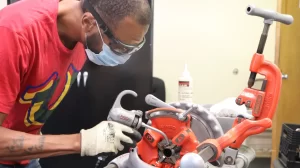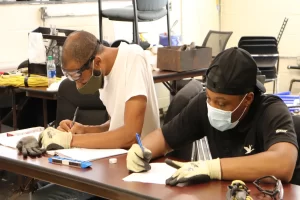Understanding a trade can be a very lucrative career path and the area of plumbing is no exception. If you like interacting with people while also helping to rebuild one of the most crucial systems in offices and homes, to become a plumber may be adequate for you. A career in plumbing with tons of longevity, those who function in plumbing appreciate steady work and tremendous pay. Here, we will understand how to become a plumber.
Plumbers are accountable for installing, renovating, and maintaining water and gas supplies, sanitation units, heating systems, and other related fixtures in both commercial and residential settings. They generally work alone and may be expected to travel short and long distances on a normal basis to attain the necessary repairs.
They are also expected to examine and construct plumber programs to assure they follow all regulations and codes. Plumbers may also be required to install things such as sinks, toilets, bathtubs, and other related equipment.
The responsibilities of a plumber are as follows:
In particular, plumbing careers are akin to lawyers, doctors, and other important members of a functioning society. Just as physicians are important to our health and lawyers are essential for a functioning legal network, plumbers are also important to retain the plumbing of a home or business. Therefore, job safety is extremely high for plumbers. No matter what demand they work in, they commonly have a steady, compatible flow of work and customers.
Do you require financial aid or student loans to pursue a vocational school for plumbing?
Vocational plumbing schools tend to cost less than conventional four-year colleges and offer shorter programs. Nonetheless, they still require money to attend. Whether you want financial aid to enable you to pay for the program relies on your monetary status as well as the school you plan to attend.

In addition to developing essential skills, such as math skills, basic communication skills, and customer service, there are numerous steps you require to take to become a plumber. The steps are as follows:
If you retain a high school diploma or you are in high school and functioning to attain your diploma, you are able to pursue a career in plumbing training program. Those who have not obtained a diploma may also receive a GED. Plumbers should have a powerful foundation in a variety of subjects, such as technology, science, computers, and math. If drafting lessons are offered, deem taking these classes to boost your knowledge.
While a college is not needed, those pursuing a plumbing career must obtain highly specified vocational activity. To do this, you must enlist in a recognized technical college or trade school that provides plumbing vocational classes where you can come to be certified on drainage networks, water, and how to operate piping appliances.
Once you have obtained vocational training, you will then be required to attain a plumbing apprenticeship program. Most internships compel you to complete a specific amount of classroom hours before you can be ratified. Nonetheless, the number of hours differs depending on the internship. During a plumbing internship, you will obtain on-the-job training and understand plumbing procedures, plumbing codes, and specialized skills.
Many states need a plumber to be licensed. Relying on where you reside, you must obtain a specific number of hours of classroom teaching, receive hands-on experience and complete an internship before appearing in the exam to receive a license. This exam evaluates a plumber’s skill status and knowledge of plumbing procedures and codes.

Once you have attained your plumbing license by completing your plumbing school in Philadelphia, you can proceed to attain experience as a professional plumber. You can also go into additional classes to understand more about the trade and expand new skills, which can enable you to progress in your career. Ultimately, you may even advance to the position of master plumber, which earns higher pay and more advantages.
Read More: